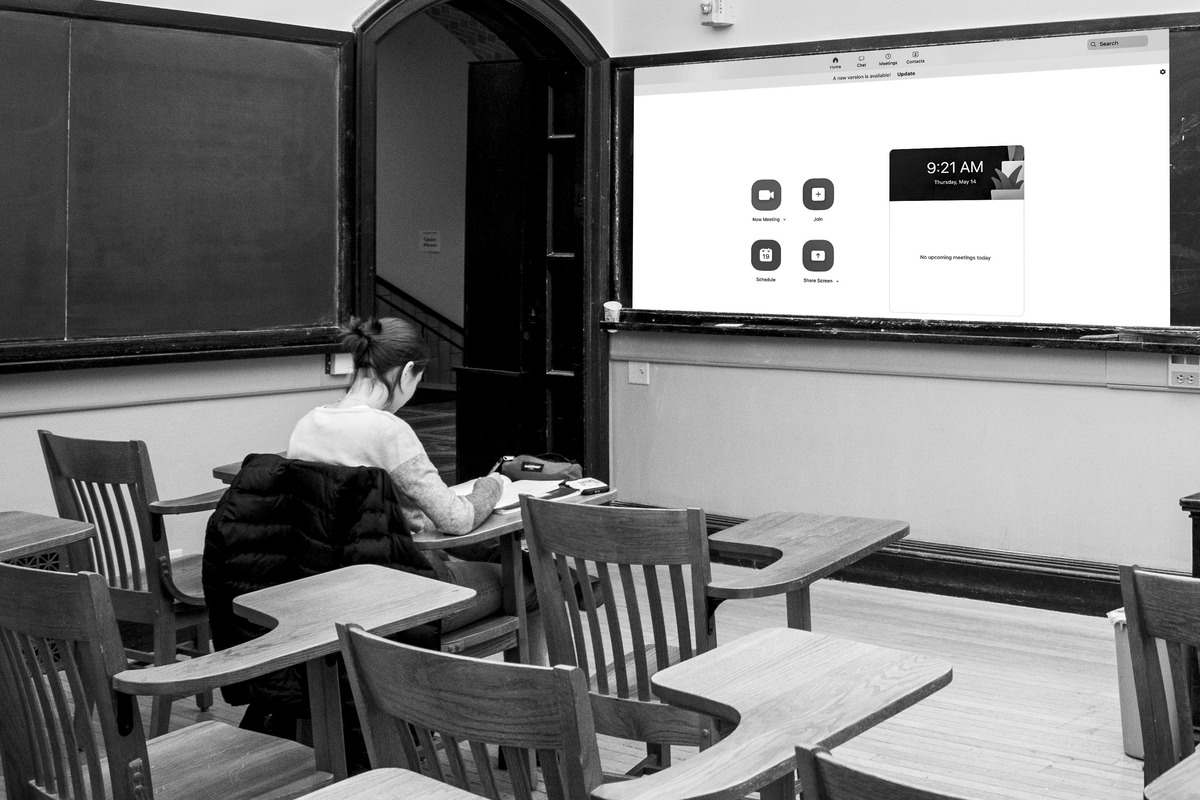Faculty senate discusses academic integrity, tenure, graduate stipends
Professors and students continue to adapt to post-pandemic academic life, which has raised issues surrounding academic integrity

Zoe Berg, Photo Editor
As Yalies get used to the “new normal” of in-person learning, academic integrity has resurfaced as a topic of conversation among Yale’s faculty.
At the most recent meeting of the Faculty of Arts and Sciences Senate, professors heard from Yale College’s Executive Committee, which aims to “enforce the Undergraduate Regulations in a fair, consistent, and uniform manner.” Faculty members have in recent months expressed concerns about maintaining academic integrity, the committee said, especially as some classes have retained partial remote options for lectures, exams and assignments.
“Digital resources have reshaped the landscape for learning, and in many cases our concepts of what constitutes plagiarism and academic dishonesty haven’t always kept up,” Executive Committee Chair David Vasseur told the News. “Our goal was really to identify some of those vulnerable areas.”
Overall, Vasseur said, the Committee aims to demystify its own role on campus and reduce accidental cases of academic misconduct.
Academic violations cases referred to the committee peaked in the late spring of 2020, with the onset of the COVID-19 pandemic, and numbers remained high into the next academic year, Vasseur said. During that time, academic violations comprised nearly all of the Committee’s cases, but have since trended downwards compared to non-academic violations as more students have returned to campus. A previous survey conducted by the News in the spring of 2021 found that a higher number of undergraduate students said they had participated in academic misconduct than during pre-pandemic semesters.
The committee, which includes eight faculty members as well as a slate of student representatives, reviewed previous years of academic misconduct ahead of the senate meeting and identified three key areas, or “traps,” that students have increasingly fallen into. These “traps” were not necessarily unique to the pandemic, but committee members said the shift to entirely or partially virtual classes during the pandemic made them more pressing to faculty.
The first, the use of shared documents for collaboration on lab reports or group assignments, can result in the inadvertent use of another student’s words. Additionally, the committee encouraged faculty members to ensure students are accurately tracking sources during online research and provide more thorough research instruction. Lastly, the committee noted a proliferation of online repositories with solution guides or walkthroughs for class assignments.
To mitigate what the Committee describes as “temptations” to cheat, Committee Vice Chair Mick Hunter said instructors should aim to hold exams in-person when possible and also clearly communicate course expectations, not relying on students to “connect the dots” on what they may or may not be allowed to do. Overall, faculty should be transparent with students regarding what steps have been taken to improve academic integrity, such as having multiple versions of an exam.
Leleda Beraki ’24, one of the Yale College Council’s academic policy directors, called concerns around academic integrity “valid” given the continued use of virtual and hybrid learning. But she also advocated for greater compassion for student well-being, noting that many still face pandemic-related burdens on physical and emotional health.
“When discussing integrity strategies, I would urge these groups to keep student ease and mental health in mind,” Beraki wrote to the News. “It’s about finding a balance between ensuring that students are comprehending material/doing their own work, and that student well-being isn’t being sacrificed for grades or academic rules.”
Beraki also said that the YCC is currently advocating for expanded hybrid options to accommodate students who are immunocompromised, contact-traced or facing health issues. In January, several immunocompromised students spoke to News and reported feeling unsafe in the classroom as the virus spread on Yale’s campus.
Hunter similarly noted the continued effects of the pandemic on classroom learning as well as the possibility of new variants forcing increased hybridization in future semesters.
“Even when we move back into the classroom, there are things that will be legacy effects from this pandemic that will be really hard to strip ourselves of,” Hunter said.
At the same Thursday meeting, faculty senators met with Director of Strategic Projects Peter Schiffer about potential accommodations for junior faculty who are facing the tenure clock amid interrupted research activities during the pandemic. Schiffer wrote to the News that accommodations are still being determined. Senators responded positively, Senate Chair Valerie Horsley said.
“We emphasized that we need to understand that when we evaluate colleagues impacted by the pandemic, we need to consider how they did under these extraordinary circumstances, not how they did with extra time,” Horsley wrote to the News. “The ‘bar’ of excellence should include a consideration of the impact.”
Also at the meeting, Dean of the Graduate School of Arts and Sciences Lynn Cooley presented an update on a number of initiatives in GSAS. The School, which undertook a cost-of-living analysis for graduate students living in New Haven last fall, is working to bring its stipends above the cost-of-living. Though stipends will increase across the board, graduate students in the humanities and social sciences, who have received lower amounts in recent years compared to science researchers, will see their stipends increased at an accelerated rate. Cooley also announced that the School would hire a mental health counselor in partnership with Yale Health.
The FAS Senate was first elected in 2015.







